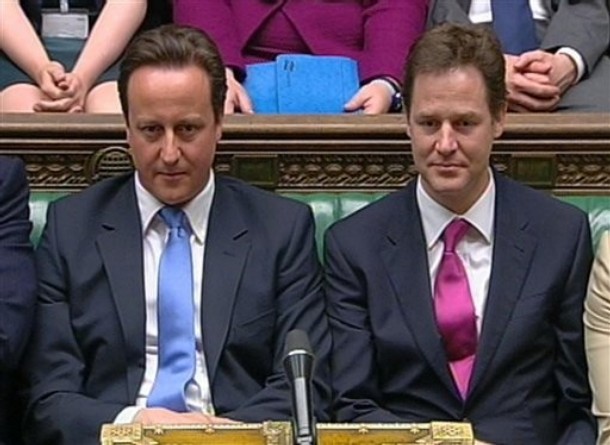
From Alex Barker, James Blitz, and George Parker, the Financial Times: David Cameron and Nick Clegg raised the political stakes on delivering a military withdrawal from Afghanistan by 2015, as the coalition came under attack for “mixed messages” in its war strategy. …
“Let me be absolutely clear that we will see our troops withdrawn from Afghanistan from a combat role by 2015,” Mr Clegg told the Commons. While admitting that no timetable could be “chiselled in stone”, he said “we must be out . . . by 2015”. Although the proposed date fits with Nato and British army plans, the strong public commitment to a definite deadline is raising tensions with Liam Fox, the defence secretary, who advocates a withdrawal based on progress on the ground. Critics of a set date argue it weakens pressure on the Taliban and reduces the incentives for them to negotiate. …
Mr Cameron also raised the prospect of a gradual drawdown starting as soon as July next year, but he made clear that this would be based on the military assessment of requirements. This is the first indication the prime minister has made that Britain would bring home troops if President Barack Obama decides to do the same. …
Earlier this week, a major conference on Afghanistan in Kabul endorsed President Hamid Karzai’s goal that Afghan forces should lead security operations across the country by 2014. Nevertheless, the public declaration of the 2015 end date by Mr Cameron and Mr Clegg is a step which the US and some British political and military figures are still not prepared to make.
The US and Nato chiefs continue to insist that combat operations will only wind down as conditions on the ground permit. In Britain, General Sir Mike Jackson, the head of the Army, also said that the 2015 target was “ambitious”. (photo: AP)
Image: ap%207%2022%2010%20David%20Cameron%20Nick%20Clegg.jpg
